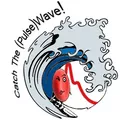MACS - Munich Adrenaline Cancer Study
In this study, the effect of a single high-intensity interval session on the bicycle ergometer on the change of adrenaline and lactate concentrations in the blood in children and adolescents between 6 and 18 years of age and with different cancer diagnoses during therapy will be investigated. In addition, further analyses of various metabolites will be performed.
One hour a week brings mobility power and speed! - A Web-based training intervention for children and adolescents with congenital heart defects

The first interim results of a currently still ongoing longitudinal study at the German Heart Center Munich show motor deficits in the majority of children with congenital heart defects. Although there are special sports groups for this target group, such as KidsTUMove, these are mainly affiliated with large centers in urban regions and are therefore difficult to reach for children from rural areas.
Commercialized and non-commercialized fitness apps are becoming increasingly popular among youth and adults who prefer not to exercise in exercise groups or gyms.
However, there is still a lack of such apps for vulnerable target groups, as they are too small and thus commercially unattractive for app developers. For this reason, the Chair of Preventive Pediatrics in cooperation with the German Heart Center Munich is investigating whether such a web-based intervention can contribute to an improvement of sports motor deficits in children and adolescents with congenital heart defects.
OaC: mygoal
The ErasmusSport* funded EU project is about improving sports opportunities for cancer patients, their families and friends. The focus is on outdoor sports, to get the individuals outdoors, preferably in nature. For this purpose, (international) structures are being created, i.e. European networks are being established, trainers are being trained who can train other trainers, sports offers are being organized in the form of events and the outcome is being scientifically monitored. For more information, please visit https://www.oacmygoal.eu/ .
Learning needs movement - fit & clever at school
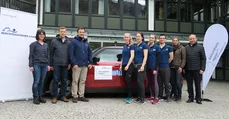
"Learning needs movement - fit & clever at school" is a joint project of the Chair of Preventive Pediatrics and the Health Regionplus Berchtesgadener Land (project duration: 2016-2020).
Improving the health status of the population and increasing the health-related quality of life are the focus of the work of the Gesundheitsregionplus Berchtesgadener Land. The area is one of the 32 project regions currently funded by the Bavarian State Ministry of Health and Care.
The project "Learning needs movement - fit & clever at school" is specifically dedicated to preventing a lack of exercise among children and young people. Since the 2015/16 school year, students from the Faculty of Sports and Health Sciences have been regularly on the road at schools in the Berchtesgadener Land region for several months each year. They test the health-related fitness of the students using selected sports motor tests. The participating students are to be given the feeling of joy in movement and their own body awareness is to be strengthened. In this way, the positive effects of exercise on mental and physical health are to be promoted and the negative consequences of a lack of exercise counteracted as early as possible. The aim of the project is to determine the status quo and to monitor progress over a period of 5 years.
In the third year of the project, the great success of the project was once again apparent: 2,826 children and young people from 22 schools (183 classes) took part in the fitness check between March - July 2018. Since the start of the project, a total of 8,078 motor tests have been carried out with 4,626 different participants: 2,093 pupils have taken part once, 1,614 have already been tested twice and 919 have taken part for the third time.
The enthusiasm of the students was clearly noticeable during the test days, the evaluation of the project by the participating schools/teachers was consistently positive and also for the 4 students who complete their internship semester within the framework of "Lernen braucht Bewegung - fit & clever in der Schule", the project represents an interesting activity with many instructive experiences for their future professional life.
Planting vegetables - harvesting health - nutrition project on track?
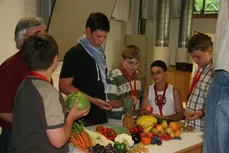
Daily exercise and a balanced diet are important for children's healthy development and are closely linked. Since children learn most easily and sustainably through diverse sensory experiences and active action, the holistic school garden project "Planting vegetables. Harvesting health" of the BayWa Foundation is based on this child-oriented learning model. Whether the information and experiences gained by the children in the process can also be scientifically measured is to be scientifically investigated in a cooperative project between the Institute of Nutritional Medicine and the Chair of Preventive Pediatrics at the Technical University of Munich.
"Sternstunden der Gesundheit“ - How fit and healthy are children in urban and rural areas?
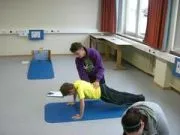
Cardiovascular diseases are the most common cause of premature death. One of the reasons for this can be an unhealthy lifestyle with little exercise and poor nutrition - problems that already occur in children and young people. But: How fit are children and adolescents in urban and rural areas? And: How healthy are children's blood vessels?
The Chair of Preventive Pediatrics is addressing these questions as part of the project funded by the Sternstunden Foundation with 336,000 euros. The project is being carried out in cooperation with the district Berchtesgadener Land, the parents' initiative of the Großhadern Children's Hospital and the Children's Heart Center of Ludwig Maximilian University. For the study, scientific data will be collected on the children's fitness and mobility values as well as the condition of their arteries. Fitness values are tested, for example, using sit-ups and push-ups. Stretching tests provide information on the children's mobility. Ultrasound diagnostics are used to determine the wall thickness and elasticity of the carotid artery.
The field phase has been completed since May 2014. Over 49 days in 28 weeks, the participants completed a total of 9320 push-ups, 23 096 sit-ups and 28 932 pacer lanes - equivalent to a distance of around 579 kilometers. Currently, the data collected is being further analyzed, publications are being prepared, and reference values for the health and vascular condition of the group of 11-18 year-olds are being calculated for the first time.
Catch the (pulse) wave/MoSiC - how healthy are my veins?
Atherosclerosis is a typical disease of adults. It is undisputed that this disease develops over a long period of time through progressive, subclinical changes in the cardiovascular system and begins in childhood. The foundations for this disease (obesity, hypertension, hypercholesterolemia, and physical inactivity) are often laid at an early age. The aim of the study is therefore to investigate the elasticity of the vessels in association with motor skills in children.
Pulse wave analysis provides a new noninvasive examination technique that offers early evidence of increased vascular stiffness as a possible precursor to atherosclerosis. Increasingly used in cardiology and neurology in adults, this study aims to collect normative values for children and to assess possible influences of body composition, blood pressure, locomotor activity and motor skills. This project, funded by the German Heart Foundation, is intended to investigate how early and under what circumstances changes in the vessels can develop in children and whether motor fitness plays a role in these changes. This will provide the basis for norm-based recommendations for sports intervention in children at risk or already suffering from the disease. The long-term goal is to reduce the persistence and progression of the disease, which begins in early adolescence, through simple diagnostic capabilities and realistic recommendations for action.
EvaSkip - Evaluation of the prevention program "Skipping Hearts"
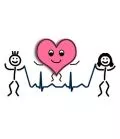
Prevention is an area of enormous importance in a constantly aging society. Various different offers exist nationwide. But there is one central problem: most projects are poorly evaluated or not evaluated at all. A first step to change this is the Evaskip project. In cooperation with the Institute for Medical Statistics and Epidemiology at the Technical University of Munich and the German Sport University Cologne, the prevention project Skipping Hearts is being evaluated.
Since 2006, the German Heart Foundation has been offering "Skipping Hearts" free of charge at elementary schools with the slogan "Rope Skipping Makes School". The idea is to motivate schoolchildren to exercise more by skipping rope. In total, more than 150,000 children have already taken part in the program, at more than 4,400 schools. But how effective is Skipping Hearts
GEWOS - Healthy Living with style
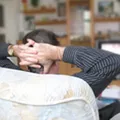
The aim of this project is to design an attractive living environment for elderly people by using various innovation potentials, especially from the field of Ambient Assisted Living (AAL). In this environment, movement stimuli, health monitoring, and other health-promoting measures with a high motivation factor, high acceptance, and high effectiveness are to be linked, with the focus on (primary) prevention. The socio-technical system solution to be designed under these aspects is based on a platform that is designed using the latest information technology findings in such a way that health-relevant data and information can be dynamically stored and evaluated, and evaluation rules and offers for exercise stimulation can be continuously updated. Various end devices and installations - in this project primarily a "movement chair" - can be connected to this platform in the home environment; at the same time, it serves as an interface to health-relevant expertise, to caregivers, and other service providers in the health sector. The project is funded by the BMBF with a total of 2.3 million euros.
